
Pembrolizumab plus paclitaxel with or without bevacizumab boosted survival in patients with platinum-resistant, recurrent ovarian cancer.

Pembrolizumab plus paclitaxel with or without bevacizumab boosted survival in patients with platinum-resistant, recurrent ovarian cancer.

The addition of atezolizumab to BCG did not yield improved EFS compared with BCG alone in patients with high-risk non–muscle-invasive bladder cancer.

Nivolumab displayed significant RFS benefit compared with ipilimumab in patients with resected stage IIIB to IIIC or IV melanoma.

Durvalumab plus FLOT chemotherapy improved overall survival in resectable gastric or gastroesophageal junction cancer, per phase 3 MATTERHORN data.

The frontline addition of cancer vaccine IO102-IO103 to pembrolizumab demonstrated an increase in PFS in patients with advanced melanoma.

T-DXd plus pertuzumab improved PFS and DOR across HER2+ breast cancer subgroups, regardless of prior therapy or PIK3CA mutation status.

Disitamab vedotin/toripalimab improved PFS and OS vs chemotherapy in HER2-expressing advanced urothelial carcinoma, per phase 3 RC48-C016 data.
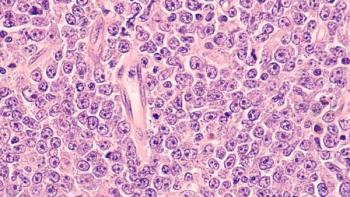
Among lymphoma survivors, a multidisciplinary intervention program had a beneficial effect on fatigue and aspects of health-related quality of life.

Twenty-year follow-up demonstrated continued imatinib efficacy in advanced GIST with doubled median overall survival.

Supervised physical activity, while feasible, was not shown to affect quality of life or fatigue in patients with metastatic cancer.

Adding platinum-based chemotherapy to osimertinib improved overall survival vs osimertinib alone in EGFR-mutated NSCLC, even in high-risk subgroups.

Sevabertinib demonstrated robust, durable responses and manageable safety in both treatment-naive and pretreated patients with HER2-mutant advanced NSCLC.

Frontline lenvatinib, pembrolizumab, and chemotherapy did not lead to increased overall survival vs chemoimmunotherapy in patients with advanced ESCC.

T-DXd plus pertuzumab improved progression-free survival vs THP regardless of prior therapy, hormone receptor status, or PIK3CA mutations.

The combination of sacituzumab with pembrolizumab did not lead to a decline in physical functioning or quality of life in patients with metastatic TNBC.

Buparlisib combined with paclitaxel failed to improve overall survival vs paclitaxel alone for patients with PD-1/PD-L1–pretreated HNSCC.

Data from a large prospective study identified male and older patients as being more likely to develop CIP and 34% of cases to become chronic.
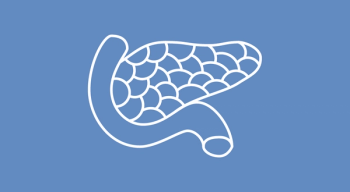
Adding zabilugene almadenorepvec to SOC chemotherapy and nab-paclitaxel was safe and effective in patients with metastatic pancreatic ductal adenocarcinoma.

Ivonescimab plus chemotherapy improved progression-free survival and response rates with manageable safety vs tislelizumab in advanced squamous NSCLC.

The DESTINY-Breast11 trial found neoadjuvant T-DXd followed by THP improved pathologic complete response vs ddAC-THP in high-risk, HER2-positive early breast cancer.
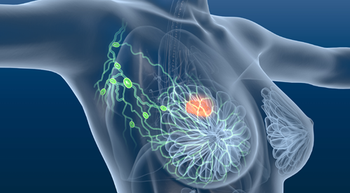
Long-term NATALEE data show adjuvant ribociclib plus an aromatase inhibitor (AI) improves invasive disease–free survival vs AI alone in HR+, HER2– early breast cancer.

Adding perioperative durvalumab to neoadjuvant chemotherapy did not worsen health-related quality of life for patients with muscle-invasive bladder cancer.

A preliminary analysis of a prospective study of patients with solid tumors identified subgroups at risk of depressive symptoms via patient-report outcomes.

Ponsegromab increased body weight in patients with cancer-associated cachexia, yielding greater improvement in those who received ponsegromab previously.
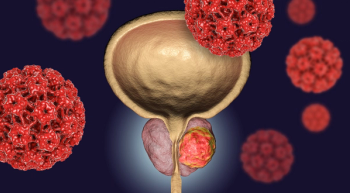
Patient-reported outcomes showed that health-related QOL stayed at baseline for patients with HRRM-positive mHSPC receiving a niraparib regimen.

Sacituzumab tirumotecan had antitumor activity in pretreated advanced endometrial and ovarian cancer, data showed.

The novel drug SHR-A1921 was safe and efficacious in patients with platinum-resistant ovarian cancer, according to phase 1 data.
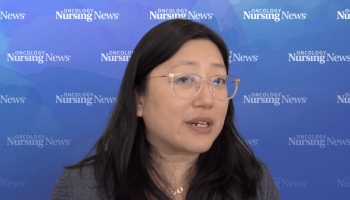
Oncology nurses should inform patients about adverse events and the signs of interstitial lung disease before treating their breast cancer with T-DXd.

Distant relapse-free survival was maintained with non-operative management of pMMR locally advanced rectal cancer.

Belrestotug plus dostarlimab-gxly improved ORR in patients with previously untreated, unresectable, locally advanced or metastatic, PD-L1–high NSCLC.